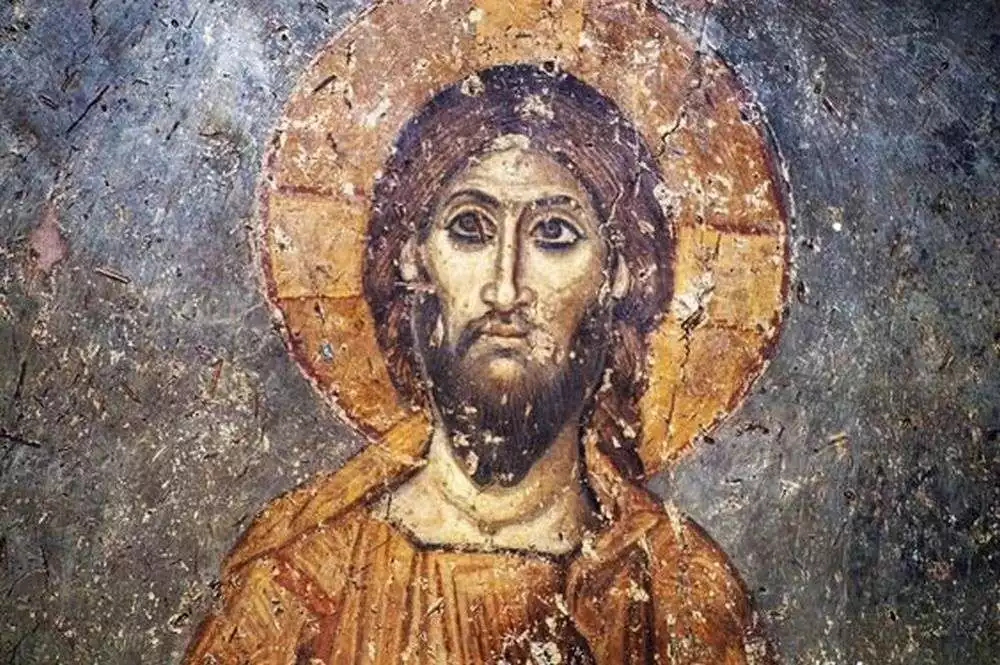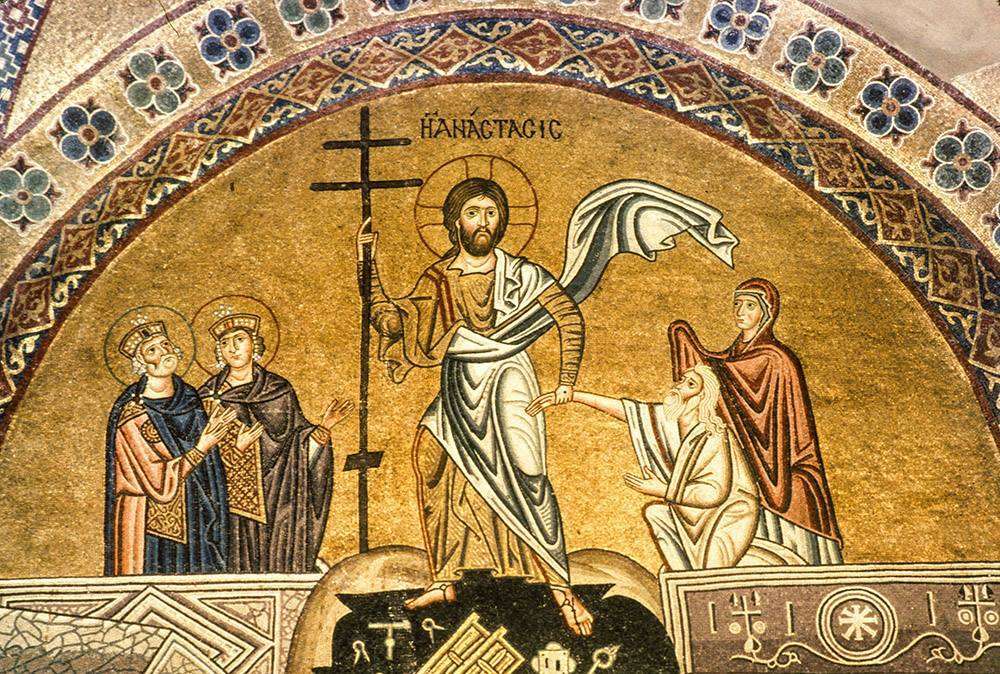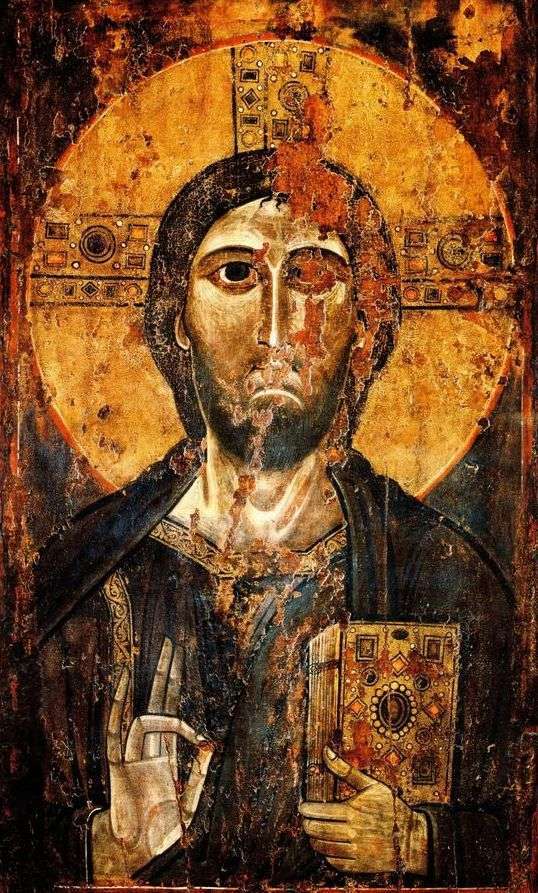
Jesus Christ, historically believed to have been born between 6 and 4 BC and crucified around AD 30-33, stands as the pivotal figure in Christianity. Revered by Christians as the incarnate Son of God, His teachings and life have profoundly influenced human history and culture. Jesus’ message, rooted in love, forgiveness, and redemption, has been a source of hope and transformation for billions over centuries. The legacy of Jesus extends far beyond religious boundaries, impacting art, literature, and moral principles worldwide. His teachings, emphasizing compassion, humility, and the pursuit of righteousness, continue to resonate in various aspects of human life, fostering a sense of community and guiding ethical conduct. The principles he espoused, such as the Golden Rule, have found expression in numerous cultural and philosophical systems, underscoring the universality of his message. Jesus’ life and works, as depicted in the Gospels, offer a profound narrative of self-sacrifice and service, inspiring countless individuals and movements dedicated to social justice and humanitarian causes.
The Birth and Early Life of Jesus Christ
The story of Jesus Christ begins in the humble settings of Bethlehem, a small town in Judea. According to the New Testament narratives, His birth, known as the Nativity, fulfills numerous Old Testament prophecies, signifying His role as the Messiah. Jesus’ early life remains largely shrouded in mystery, with few biblical accounts detailing His upbringing in Nazareth, under the care of Mary and Joseph. This period, though scarcely documented, is pivotal in understanding the human aspect of Jesus, emphasizing His growth and development in a family setting.
Despite the paucity of details, it is understood that Jesus was raised in a Jewish household, adhering to Jewish customs and laws. His upbringing in Nazareth, a Galilean town, likely exposed Him to various cultural and religious influences, shaping His later teachings. The Gospels recount a singular event during His youth – a pilgrimage to Jerusalem at the age of twelve, where He impresses the temple scholars with His understanding. This episode highlights Jesus’ early connection to His spiritual mission and foreshadows His future role as a teacher and prophet.
The early life of Jesus Christ, while not extensively chronicled, plays a crucial role in the narrative of Christianity. It sets the stage for His later ministry and serves as a testament to His fully human experience, a key aspect of Christian doctrine. The story of Jesus, from His humble beginnings in Bethlehem to His growth in Nazareth, forms the foundation of His journey as the central figure of Christianity.

The Public Ministry of Jesus Christ
The public ministry of Jesus Christ, commencing around the age of 30, marks a significant phase in His life, characterized by teaching, healing, and performing miracles. This period, primarily documented in the four Gospels, showcases Jesus’ profound impact on society through His message and actions.
Traveling extensively through regions like Galilee, Samaria, and Judea, Jesus attracted followers with His teachings, parables, and insights into the Kingdom of God. His message emphasized love, compassion, and forgiveness, challenging the religious and social norms of the time. The Sermon on the Mount, one of His most renowned teachings, encapsulates His ethical directives, including the Beatitudes, which advocate for humility, mercy, and peace.
Miracles attributed to Jesus, such as healing the sick, restoring sight to the blind, and even raising the dead, further established His authority and divine nature in the eyes of many. These acts not only affirmed His message but also demonstrated His compassion and power over physical and spiritual realms.
Amid His ministry, Jesus faced opposition from various religious leaders who viewed His teachings and claims of divinity as blasphemous and threatening to established religious order. This opposition eventually culminated in His arrest and crucifixion, a pivotal event in Christian theology.
Jesus’ ministry also involved forming a close-knit group of disciples, whom He taught more intimately and who played crucial roles in the spread of His teachings after His death. His interactions with societal outcasts and sinners were particularly notable, as He often chose to associate with those marginalized by mainstream Jewish society.
Through parables and direct teachings, Jesus conveyed deep spiritual truths in a manner that was both profound and accessible to the common people. His messages of repentance, the imminent arrival of the Kingdom of God, and the importance of inner purity over external religious observances were revolutionary at the time.
Furthermore, the inclusion of women in His ministry was a radical departure from the norms, as He welcomed their participation and acknowledged their worth in a society that often marginalized them.
The culmination of Jesus’ ministry, leading to His crucifixion and subsequent resurrection, is central to Christian belief, symbolizing the ultimate act of love and sacrifice for the redemption of humanity. This defining moment highlights the transformative power of His teachings and the eternal impact of His life on the world.
The Crucifixion and Resurrection
The crucifixion of Jesus Christ signifies the climax of His earthly ministry. This act of sacrifice, carried out in Jerusalem, fulfills Old Testament prophecies and establishes the foundation for Christian salvation doctrine.
Jesus’ trial before religious and Roman authorities, leading to His crucifixion, highlights the political and religious tensions of the era. His death on the cross, an event mourned by His followers, is seen as the ultimate act of love and redemption, paying the price for humanity’s sins.
Three days following His death, Christian doctrine asserts that Jesus rose from the dead, an event known as the Resurrection. This miraculous occurrence not only validates His claims of divinity but also signifies victory over sin and death, offering eternal life to believers. The Resurrection is celebrated by Christians worldwide as Easter, a cornerstone of Christian faith.
Post-Resurrection, Jesus appeared to His disciples and followers, further instructing and encouraging them before ascending to heaven. This period reassured His followers of His continued presence and set the stage for the spread of Christianity through the apostles and early Church. The impact of these events continues to resonate, forming the bedrock of Christian beliefs and practices.
The Teachings and Parables of Jesus
Jesus Christ’s teachings and parables constitute a fundamental aspect of His ministry, imparting wisdom and moral guidance that have shaped Christian thought and ethics. Through His teachings, often delivered in the form of parables, Jesus conveyed profound spiritual truths, using simple yet powerful stories drawn from everyday life.
His parables, such as the Good Samaritan and the Prodigal Son, underscore themes of forgiveness, love, and mercy, challenging listeners to rethink their values and behaviors. The parables often had a surprising twist, subverting conventional wisdom and societal norms, thereby making a deeper impression on His audience.
Beyond parables, Jesus’ direct teachings, such as the Lord’s Prayer and the Golden Rule, offer foundational principles for Christian living. His teachings also addressed religious hypocrisy, advocating for a genuine, heartfelt relationship with God over mere outward religious observances.
These teachings, while rooted in Jewish tradition, introduced a new dimension of spirituality focused on inner transformation and a personal relationship with God. They emphasized the spirit of the law rather than its letter, inviting a broader, more inclusive understanding of righteousness.

The Influence of Jesus Christ on History and Culture
The influence of Jesus Christ extends far beyond the religious sphere, profoundly impacting history, culture, art, and morality. His life and teachings have inspired countless works of art, literature, and music, reflecting His enduring significance across diverse cultures and epochs.
In the realm of ethics and morality, Jesus’ teachings on love, compassion, and forgiveness have informed various social reforms and humanitarian efforts. His emphasis on caring for the marginalized and oppressed has motivated individuals and organizations to advocate for social justice, healthcare, and education.
The Christian calendar, with events like Christmas and Easter, revolves around the life of Jesus, marking His birth and resurrection. These celebrations have become embedded in global culture, transcending religious boundaries and becoming part of a shared human heritage.
Moreover, the story of Jesus has influenced legal and political thought, particularly in the Western world, where principles of equality, human rights, and the dignity of the individual echo His teachings. The impact of Jesus’ life and message is thus seen not only in religious contexts but in the very fabric of human civilization, continuing to inspire and guide millions across the world.

The Legacy and Continuation of Christianity
The legacy of Jesus Christ lives on through Christianity, one of the world’s major religions, with a vast following spanning numerous denominations and cultures. The core beliefs center around Jesus’ teachings, His death and resurrection, and the message of salvation and eternal life. The spread of Christianity, initially through the apostles and later by missionaries, has had a profound global impact, shaping societies, laws, and moral principles.
The establishment of the Church played a pivotal role in preserving and propagating Christian doctrines and practices. Over centuries, Christianity weathered schisms, reforms, and transformations, adapting to different cultural contexts while maintaining its foundational beliefs.
Modern Christianity, with its diverse expressions, continues to grapple with contemporary issues, integrating faith with advances in science, technology, and philosophy. The Church’s role in social, humanitarian, and environmental concerns reflects Jesus’ teachings on compassion and stewardship.
In summary, the enduring legacy of Jesus Christ is evident not only in religious circles but in the broader tapestry of human history and culture. His teachings and life continue to inspire, challenge, and guide billions around the globe.
References
- Brown, Raymond E. “An Introduction to the New Testament.” Doubleday, 1997.
- Ehrman, Bart D. “How Jesus Became God: The Exaltation of a Jewish Preacher from Galilee.” HarperOne, 2014.
- Institute for Religious Research. “What Are the Most Reliable Sources About Jesus?.” Accessed 26 December 2023.
- Institute for Religious Research. “What Are Good Sources on Jesus?.” Accessed 26 December 2023.
- Metzger, Bruce M., and Michael D. Coogan, editors. “The Oxford Companion to the Bible.” Oxford University Press, 1993.
- National Geographic. “La Véritable Histoire de Jésus: Ce Que Révèle l’Archéologie.” Accessed 26 December 2023.
- The Biblical Archaeology Society. “Did Jesus Exist?.” Accessed 26 December 2023.
- Wright, N.T. “The Resurrection of the Son of God.” Fortress Press, 2003.

